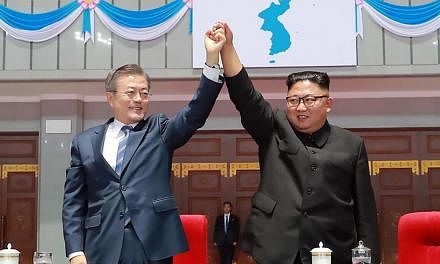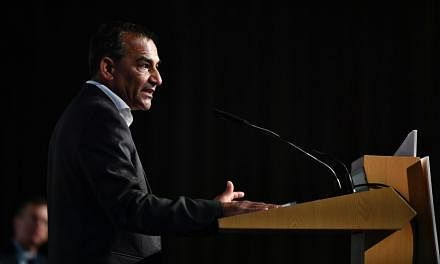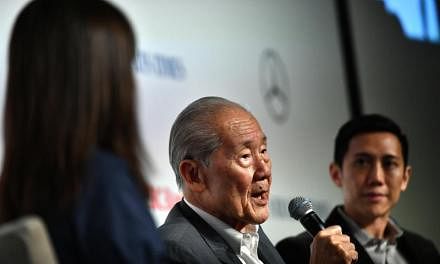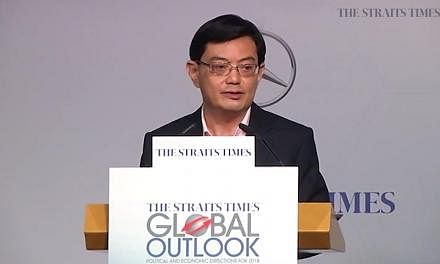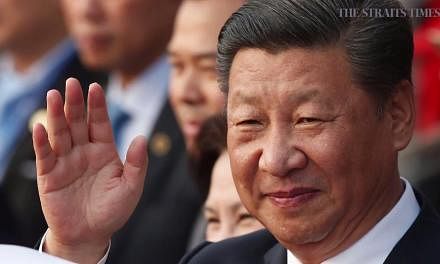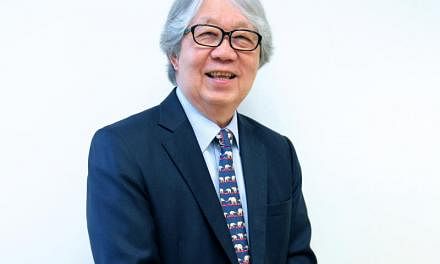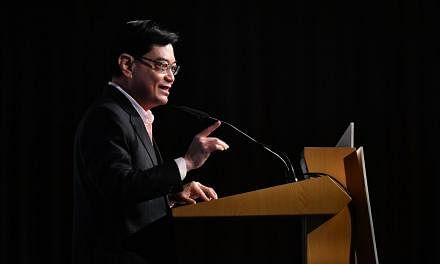SINGAPORE - As chair of the Asean regional bloc next year, Singapore will push for greater economic integration within the regional grouping, Finance Minister Heng Swee Keat said on Tuesday (Dec 5), calling it a "very important part" of Singapore's work.
Mr Heng, who was speaking at The Straits Times Global Outlook Forum during a question-and-answer session, was responding to a question on what Singapore would do when it takes over the Asean chairmanship in 2018.
Finding more ways for member countries to work together and complement each other within the Asean Economic Community will be a big part of the agenda, said Mr Heng.
"We hope to continue to work towards that integration in a bigger way, in the area of trade in goods, services, investments, and looking at new things that we will need to do with ICT (information and communication technologies), e-commerce, innovation and technology, the scope for cooperation will be quite different and we should try to advance that discussion," said Mr Heng.
Singapore would also try to push forward talks for the Asean-led Regional Comprehensive Economic Partnership (RCEP), and try to "get a consensus as much as possible" among member countries.
The 16-country trade deal also includes Australia, China, India, Japan, South Korea and New Zealand.
Mr Heng said countries in Asean, and many countries in Asia, still believe in globalisation despite the rise in anti-globalisation sentiment in the United States, pointing to Chinese President Xi Jinping's speech defending economic globalisation at the World Economic Forum in Davos earlier this year.
There is scope for Asean to work with other partners such Japan, South Korea and India, including China and its Belt and Road Initiative (BRI).
The BRI is a mega Chinese development strategy that aims to build infrastructure along sea and land trading routes, linking up China to Europe and Africa.
Earlier, Mr Heng spoke about his recent visit to China where he had discussed the BRI with Chinese leaders.
"I think the Chinese have pinpointed a very important issue about the region and about the world economy in that hundreds of millions of people today remain in emerging economies which have not quite fully benefited from even the Industrial Revolution," he said.
For instance, some countries lack transport infrastructure, which drives up logistics costs.
An interesting feature of the BRI then, is that basic infrastructure will have to be built in many emerging economies along these trade routes for them to be integrated with the global economy, said Mr Heng.
This in turn will have an impact on countries that are part of the BRI, including Singapore, he added.
Titled "Facing the challenges of a new world order", this year's ST Global Outlook Forum was attended by more than 320 participants.
OCBC Premier Banking is the presenting sponsor for the forum and Mercedes-Benz is the official car for the event.


